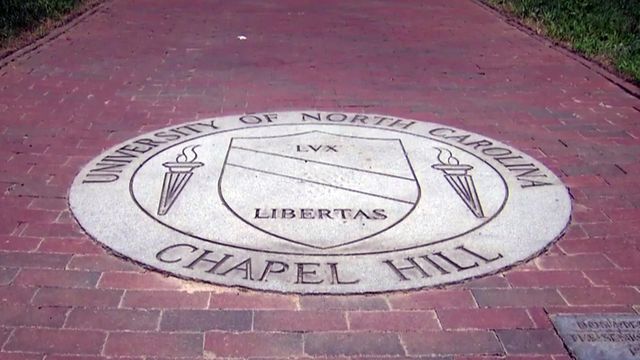Some UNC-Chapel Hill faculty worry decision's already been made to bring students back to campus
UNC-Chapel Hill's reopening for the fall semester has been widely criticized by students and faculty, so a new advisory committee that met for the first time Tuesday is trying to assist as the university maps out its plans for the spring semester and how to avoid repeating the failures of the fall.
Posted — UpdatedUNC-Chapel Hill's reopening for the fall semester has been widely criticized by students and faculty, so a new advisory committee that met for the first time Tuesday is trying to assist as the university maps out its plans for the spring semester and how to avoid repeating the failures of the fall.
"This committee is not the only game in town," said faculty chair Mimi Chapman, who co-chairs the community advisory committee. "This group is designed to widen the circle a bit."
The panel includes students, staff, faculty and Chapel Hill residents and business owners. They discussed more coronavirus testing and the need to change student behaviors about wearing masks, limiting gatherings and cooperating with testing and contact tracing efforts.
"We had community standards. We had the masks. We did a lot of things we thought would work for the fall, and as you know, it didn't work at the end of the day," said Seth Noar, a professor in UNC's Hussman School of Journalism and Media.
"Our concerns are the students in the community," Chapel Hill resident Kathy Atwater said. "We have signs posted for students, as well as neighbors, about wearing masks, keeping safe social distancing, but still. that's a challenge because people want to do what they want to do."
"I'm not sure folks have another pivot in them," said Sharon Holland, the Townsend Ludington Distinguished Professor in American Studies. "I just want us to think about the back end. If we're going, are we going no matter what? Are we going, and we're going to pivot at a certain point? If people hear that might be a possibility, that's what really strained people in the summer."
"This is a time of uncertainty but also a time of opportunity. I’m confident we can do this," he told the board.
Some faculty members fear that Guskiewicz has already made up his mind without taking any input from the community advisory committee or faculty groups.
"I certainly understand why people have frustrations," said Jim Thomas, an epidemiologist and ethics professor at UNC's Gillings School of Global Public Health. "When emotions are raw as they are now on campus, there isn’t a lot of trust. So, when something ambiguous is said, they are going to assume the worst, and I think that’s what is happening."
Administrators all the way up to the UNC Board of Governors haven't been completely transparent about their decisions during the pandemic, Thomas said.
But Chapman and co-chair Shayna Hill said they don't understand others' frustrations, saying that they believe Guskiewicz is thoughtfully engaging others' perspectives.
"I don’t feel like he jumped ahead of us in any way. I feel like when the chancellor makes an ask of us, especially of staff in this capacity, it’s an honest ask," said Hill, who chairs the UNC Employee Forum and serves as manager of the Department of Statistics and Operations Research.
"I didn’t agree to work this hard and meet this many times over the next two and a half months to feel like that my voice isn’t important or won’t be validated," she added. "I hope that people will give it a chance and they will see that this is what a large university should do."
"This is a positive process. It is getting many, many more voices to the table than were at the table in the spring," Chapman said. "I think there is more coordination between various groups that are working on these questions, so that’s all to the good in my view."
Related Topics
• Credits
Copyright 2024 by Capitol Broadcasting Company. All rights reserved. This material may not be published, broadcast, rewritten or redistributed.





